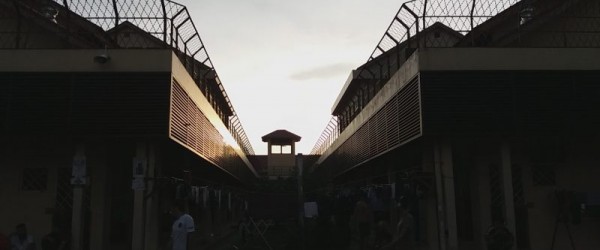When my grandmother developed Alzheimer’s disease, she started to get me confused with her son, who had moved to Brazil at what was then my age. As a result of this, and of the feelings of guilt she still harboured towards him, seeing me had the effect of making her anxious. It was only through conversation that she became calmer to the point where we could enjoy each other’s company.
Through practice I learned that the best course of action was not to correct her misapprehension, but rather to speak with my own voice and to tell her ordinary things about my life. I neither indulged nor rebelled against her fantasies. I let her talk about my grandfather as if he were still alive, and brought the conversation back to shared memories or concrete topics she could still grasp and express an opinion about. The success of this strategy was limited, but one day our conversation went so well I forgot about her illness, or even to keep an eye on the time. The visit ended with my having to literally run across the village to the railway station in order to catch the last train back to the city.
My grandmother’s daily self-care needs were very high, and it never occurred to us at the time that her rigidly segregated, hospital-like rest home might not be the best place for her to wait safely, and in relative comfort, for the end. In those same years, a group of Dutch caregivers began designing Hogeweyk, a village conceived to allow dementia sufferers to maintain a measure of autonomy and control over their environment. Structured around a series of template ‘lifestyles’ – ‘upper-class, homey, Christian, artisan, Indonesian and cultural’ – the group homes at Hogeweyk don’t confront residents with constant, jarring reminders of their illness, but rather encourage social interaction and participation. Other facilities that have been built since then, such as the Fartown village at Huddersfield in the UK, are modelled around 1950s housing and communal spaces, with meticulous attention to period detail.
What in other contexts may strike us as superficial, fashion-driven nostalgia, here serves the pragmatic purpose of keeping residents anchored to their psychological present – that is, to the time to which what is left of their memory most frequently returns. Residents of these facilities can go shopping (using fake money) in stores lined with generic, familiar products. They can walk the streets of the small grid-like quarters in safety, under the watchful eyes of cameras and plain-clothes nursing and security staff. At the Benrath Senior Centre in Düsseldorf, they can even wait at the stop for a bus that will never come.
The concept is highly suggestive, and routinely evokes comparisons to The Truman Show, Andrew Niccol’s sardonically dystopian story of a man condemned to live his life on a television set. In this case, the pretence is humane, as it seeks to restore (as opposed to suppress) agency, but the broader cultural reverberations are hard to ignore. Increases in life expectancy have caused dementia to reach epidemic levels, and many – if not most – families in the West are set to be affected by it as populations continue to age. But its effects are markedly different: for the sufferers, it sometimes takes the form of a long, almost gentle goodbye, the gradual taking of leave from the experiences and the relationships of a lifetime; for their loved ones, it is both heartbreaking and a burden. The duty to care for someone who can no longer recognise us, and increasingly be recognised by us for the person we once knew, is a heavy one. It can also be terribly hard to let go, to accept that the objective facts of our lives cease to matter when measured against the pain and disorientation that reminding can cause. For the families, then, it becomes an exercise in wilful amnesia: we learn to allow our elders to forget.
At the same time as individual lives are getting longer, exposing more people to dementia, our collective life as a species is getting shorter. It is the same progress that presides over both the medical advances and the frantic exploitation of the planet’s resources for present-day use, which threatens to erase the future altogether. Soon there may no longer be a past for anyone to remember, and ‘dementia villages’ like Hogeweyk will become indistinguishable from every other built environment. For now, however, their import is much more symbolic. Like my conversations with my grandmother, these special facilities make concessions to forgetting that our culture is generally unwilling to make so that what is left of experience can be salvaged and shared. They show us that memory can be a burden, too, and how to alleviate it.



